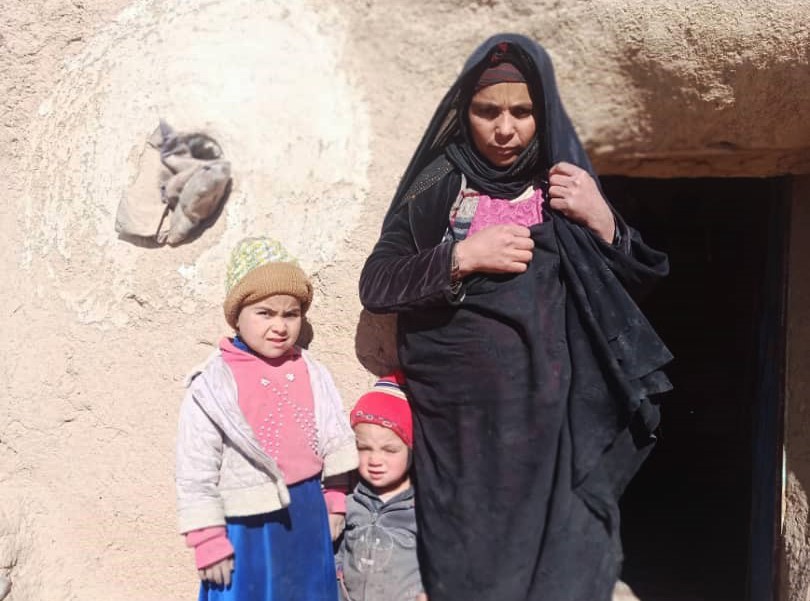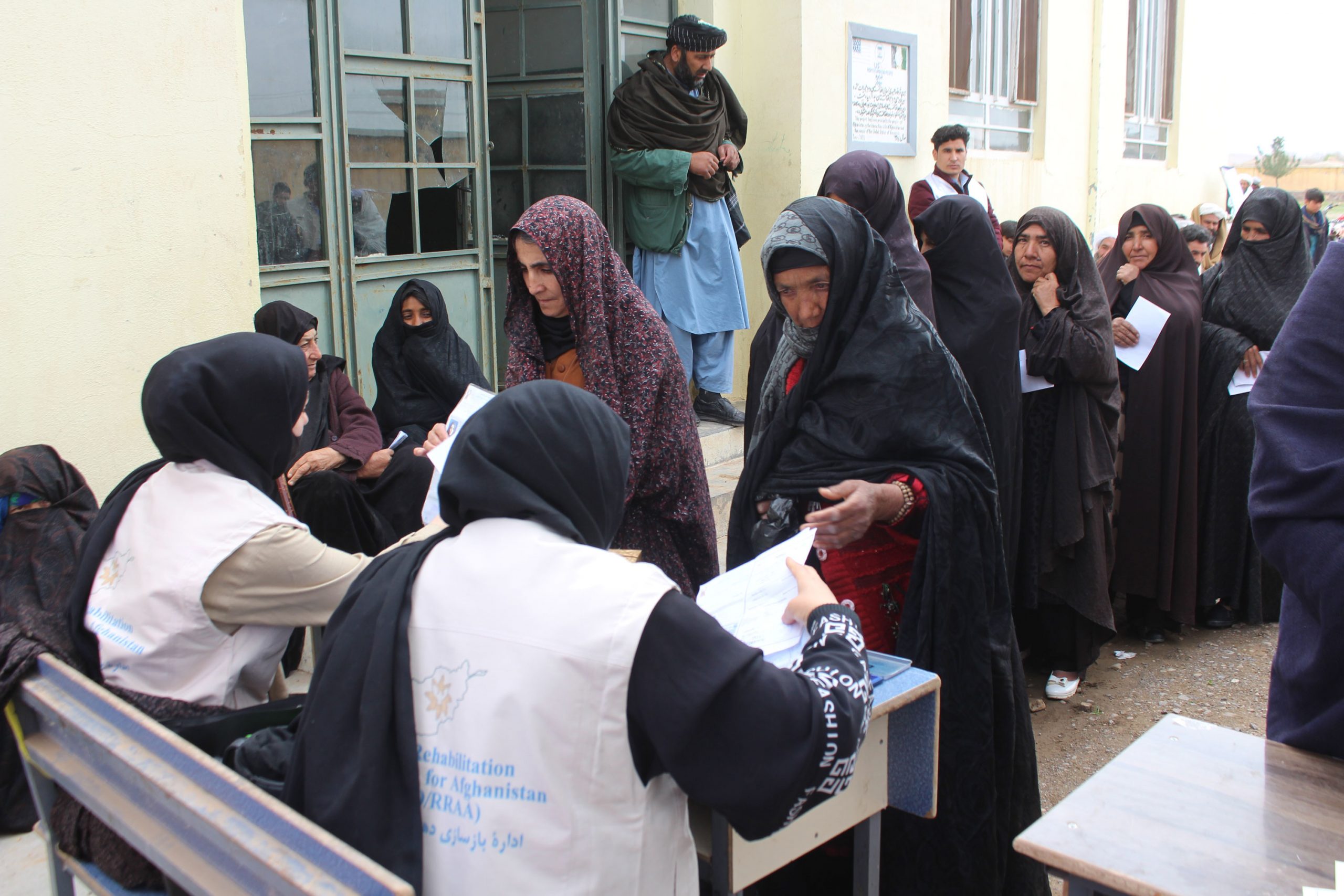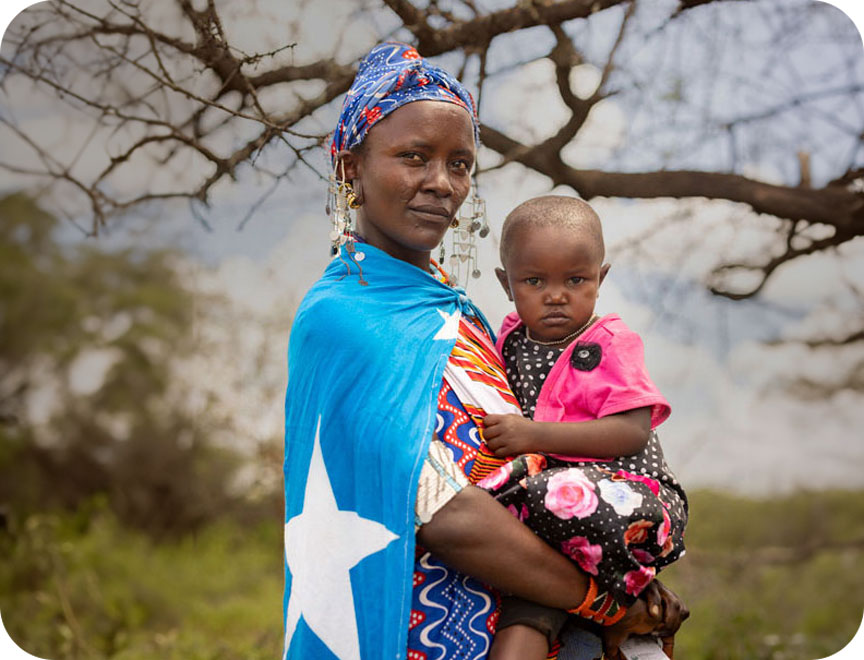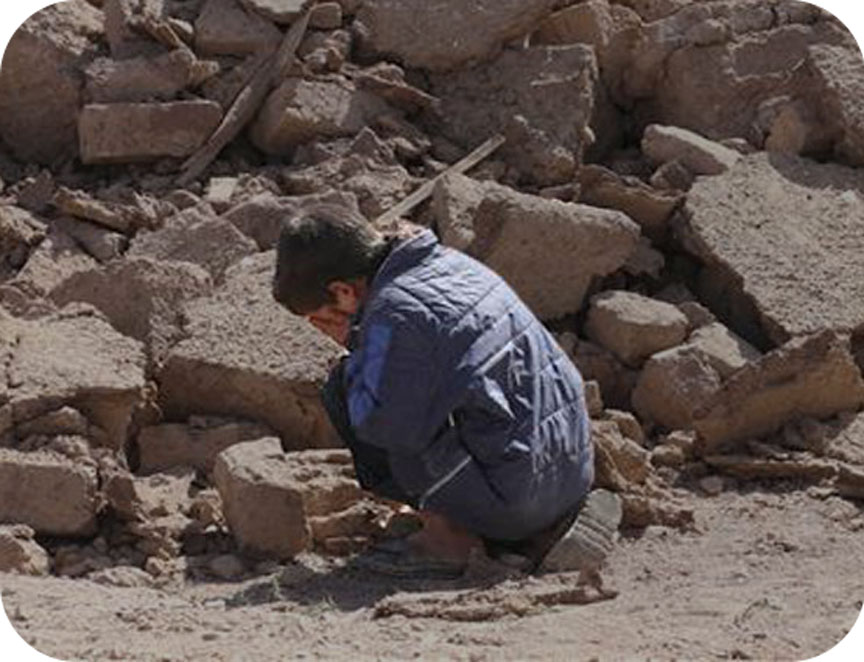Children are hungry and mothers are desperate in Afghanistan’s latest crisis
A combination of decades of conflict, years of drought, and economic turmoil has led to a crippling food crisis and is pushing millions of children and their families into extreme poverty.
By ChildFund Australia
In the remote villages of Herat Province, where Afghanistan shares its border with Iran and Turkmenistan, hunger is a daily burden for many children and their families.
For widowed or single mothers such as Maliha* (pictured below) and their children, they are barely surviving.
Maliha lives with five of her children on a barren plateau in Herat. Her children, who are under the age of 12, and in urgent need of food and nutrition.

A combination of decades of conflict, recent years of drought, and worsening economic instability since late 2021 has led to a crippling food crisis in Afghanistan.
Nearly 9 million Afghans are at risk of starvation, according to the United Nations World Food Program and Food and Agriculture Organization. Two million children are already malnourished.
There are few job opportunities for women in Afghanistan, and for widowed or single mothers like Maliha the chances of earning a stable income to support and feed their children are almost impossible.
Maliha and her children have been surviving on a few dollars a week, which they earn from gathering licorice roots near their village.
The roots grow deep in the ground, and it is difficult for Maliha’s children to dig them out with their little hands so they often wait until a tractor works the ground and brings the roots to the surface.
It takes up to three days for Maliha and her children to collect four kilograms of roots, which is the amount they need to earn US$1 to buy basic foods such as bread, rice or sugar. If they are lucky, Maliha and her children eat rice once a week.
Desperate circumstances, heartbreaking choices
The United Nations Development Programme estimates that 97 per cent of Afghanistan’s population – almost 39 million people – could fall below the poverty line this year without emergency assistance.
In Herat Province, where Maliha and her children live, the impact of the food crisis is particularly concerning. A disproportionate number of households – 15 per cent – compared to the rest of the country (5 per cent) are run by women, mostly single mothers or widows, living with little to no income.

Afghanistan’s economy, which has long been heavily dependent on foreign aid, is on the brink of collapse.
The withdrawal of international troops from Afghanistan in 2021, and the subsequent takeover of the Taliban, led to countries such as the US and Germany suspending aid, and the World Bank and the International Monetary Fund halting payments.
Basic services such as healthcare and education that were dependent on international support have been disrupted. Vulnerable families like Maliha’s, who once received support from the government, are now facing desperate circumstances and have been forced to make heartbreaking choices to survive.
Without money to buy food for their children, parents have been forced to take their children out of school to work or marry.
Maliha had no choice but to agree to an arranged marriage for her 13-year-old daughter to pay off a debt.
Young girls who enter marriages are more likely to face a future of isolation, poor mental health, abuse and sexual exploitation, and high rates of maternal mortality.
Emergency support for women and children
ChildFund Alliance member, WeWorld, is one of the few international humanitarian organisations working in Afghanistan in response to the crisis.
WeWorld’s National Coordinator in Afghanistan, Jailan, described the situation on the ground as “one of the worst emergencies” he had seen in the 12 years of working with humanitarian groups in the country.
“A lack of basic human and civil rights, and the impacts of poverty and drought have really broken people,” he said. “Families are desperate for food. Children are living in extreme poverty and do not have even a third of the food that they should be eating a day.”
“The stories are heartbreaking.
“When I heard of Maliha’s story I was shocked and devastated that this had happened.”
ChildFund Australia is working with WeWorld to respond to the crisis in Afghanistan by providing emergency cash transfers to vulnerable families in Herat Province, specifically women-led households with children.
*Individuals’ names have been changed.




























